What's on George Saunders' Bookshelf?
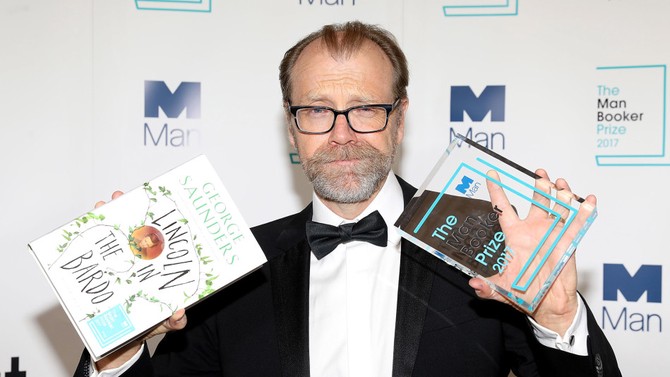
Photo: Tim P. Whitby/Getty Images
But wow, how to avoid this? Aren't I actually doing this even now, every day? Prayer helps, meditation helps—and so does reading.
Reading is a form of prayer, a guided meditation that briefly makes us believe we're someone else, disrupting the delusion that we're permanent and at the center of the universe. Suddenly (we're saved!) other people are real again, and we're fond of them.
The world is bright and new, workable, worthy of our attention. This grass (that sun, these emotions) are the same grass/sun/emotions found in Shakespeare and Virginia Woolf, Zadie Smith and Tolstoy: What a privilege to be here, in this recently Literature-sanctified world! Fiction is a kind of compassion-generating machine that saves us from sloth. Is life kind or cruel? Yes, Literature answers.
Are people good or bad? You bet, says Literature. But unlike other systems of knowing, Literature declines to eradicate one truth in favor of another; rather, it teaches us to abide with the fact that, in their own way, all things are true, and helps us, in the face of this terrifying knowledge, continually push ourselves in the direction of Open the Hell Up.
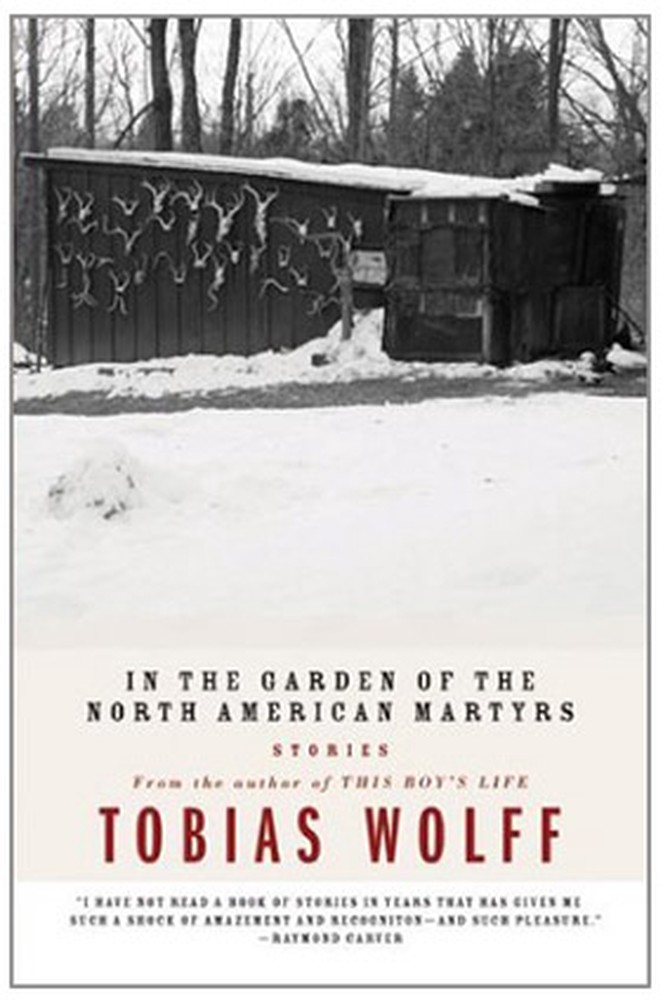
In the Garden of the North American Martyrs
By Tobias WolffWolff's first collection of stories is near to my heart because it convinced me to come to Syracuse and study with him, which turned out to be one of the great blessings of my life. At the time I thought a writer had to be wild, thoughtless, and somewhat insane, ideally addicted to something. But Wolff—a wonderful father and husband, protective and loving with his students—taught us that not only was it unnecessary to be a wreck of a human being, it was, in fact, necessary to strive to be an excellent human being: alert, forgiving, funny, morally engaged in the world around you. My favorite story in this wonderful book is "Hunters in the Snow," which hugely influenced the current generation of American writers in the way it used realist technique to depict absurdist behavior.
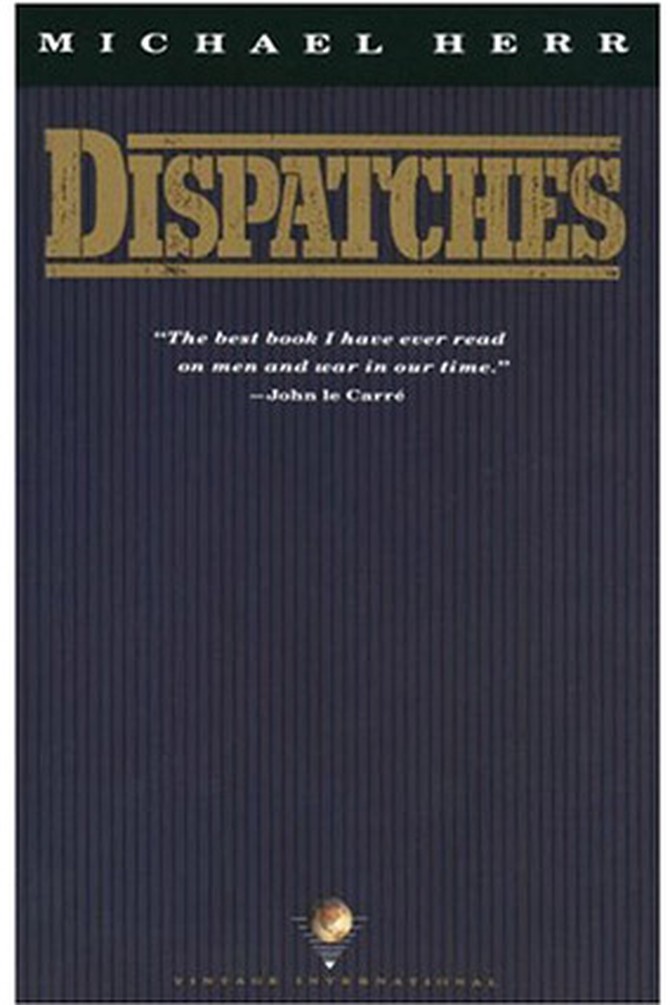
Dispatches
By Michael HerrThe best Vietnam memoir ever, which should be required reading for anyone contemplating invading another country, as a reminder of the horror that will result, no matter what, when we set out to enforce virtue via murder. I first read this as an engineering student at the Colorado School of Mines, where I wrote a paper contrasting it with official army reports about the battle of Khe Sanh. The difference between these two modes—one "factual" and bureaucratic, the other intelligent and compassionate and full of sorrow—showed me what I wanted to do with my life. Reading Herr taught me that writing with intelligence and precision is a form of being in love with the world.
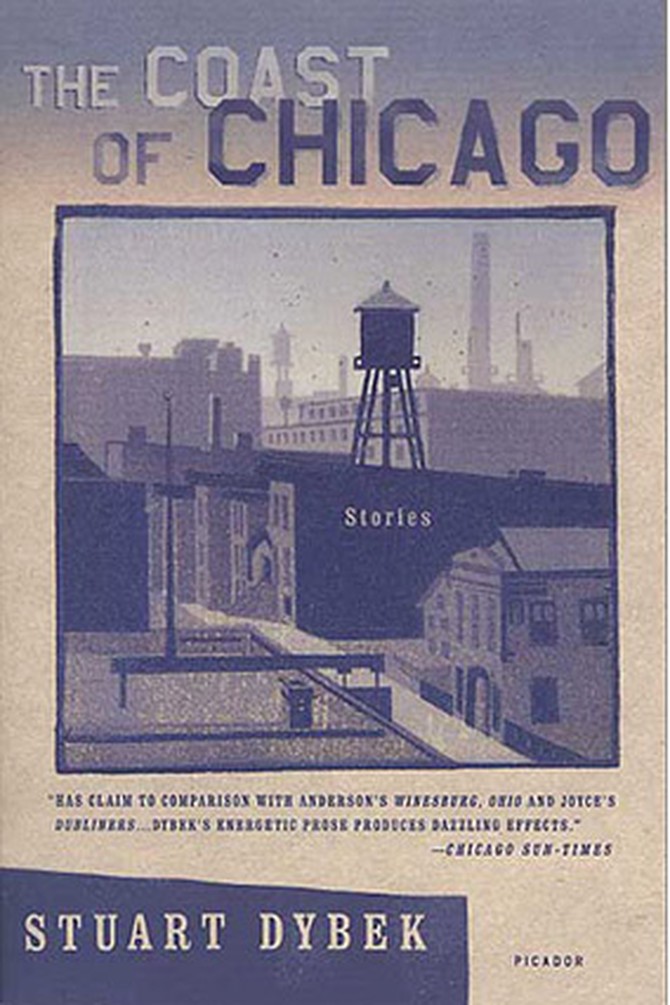
The Coast of Chicago
By Stuart DybekDybek, who's from Chicago, writes like Chicago would write if Chicago came to life: kindhearted, sardonic, nostalgic, capable of finding beauty in the most unlikely places (a cup of condensed milk, a street outside a prison). His story "Hot Ice," set in my father's old neighborhood, left me red-faced and near tears in the Chicago Public Library when I first read it. Never before had I understood what fiction could do to you when set in a time and place you knew, instead of some musty black-and-white locale (Hemingway's Spain, Faulkner's Mississippi). These were people I recognized, worrying about things I worried about, in the same stilted, affection-drenched, diphthong-clipped language I spoke. Dybek nails the sweetness under the Chicago toughness, and knows the mythical city, where drowned girls are preserved forever in abandoned icehouses and kids on the El dream of love.
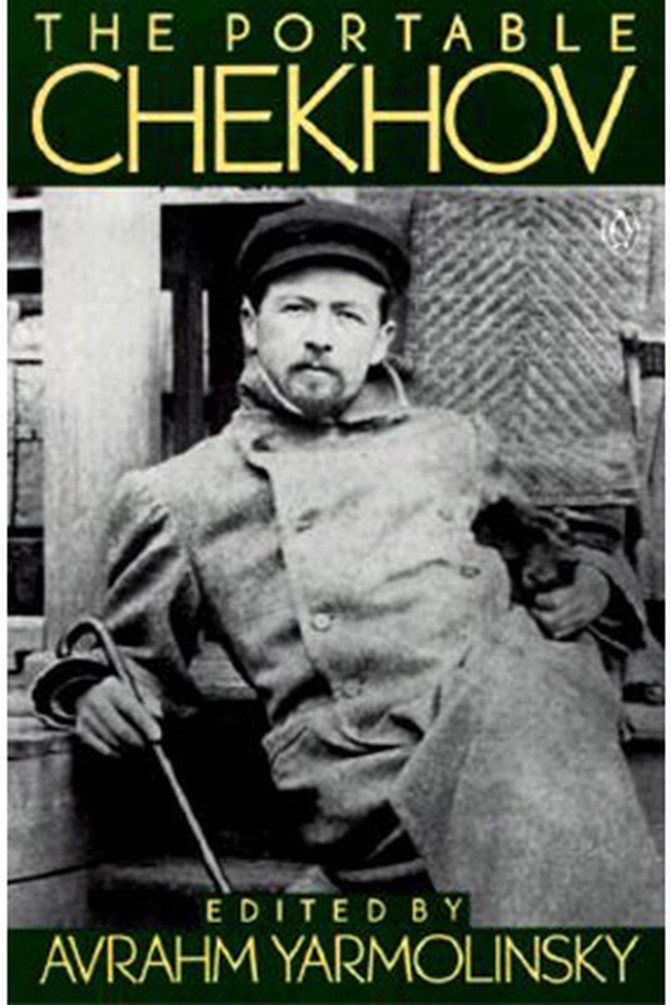
The Portable Chekhov
By Anton ChekhovChekhov—shall I be blunt?—is the greatest short story writer who ever lived. In "Gooseberries" he offers the perfect distillation of the writer's aspiration: "Every happy man should have someone with a little hammer at his door to knock and remind him that there are unhappy people, and that, however happy he may be, life will sooner or later show its claws." In story after story, Chekhov, in the role of that man with the hammer, urges us to be gentle with one another, and honest with ourselves.
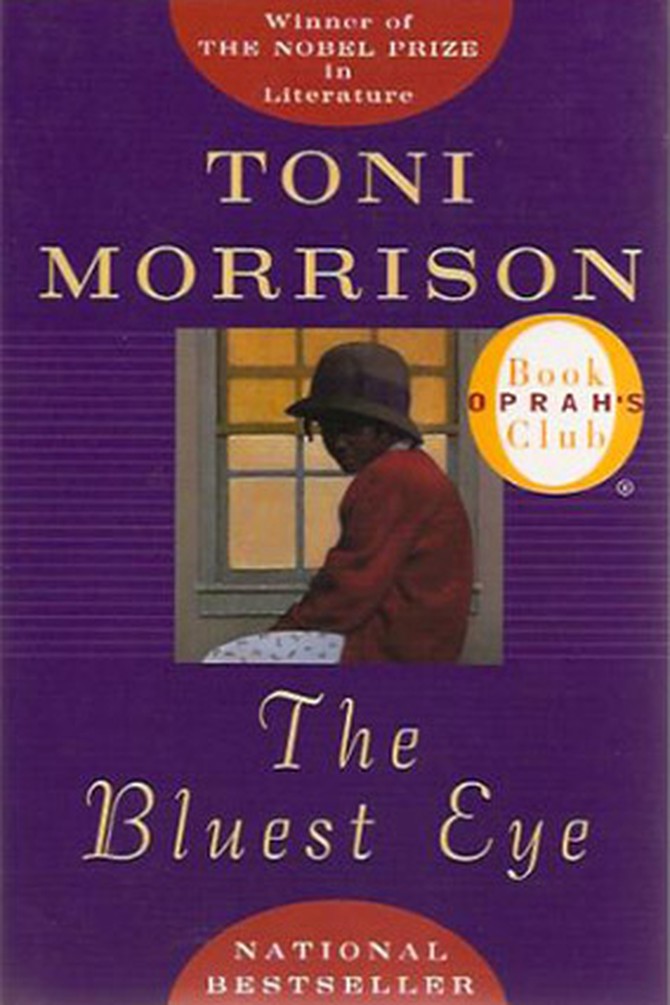
The Bluest Eye
By Toni MorrisonI first read this book when our daughters were babies, and something about the combination of that first flash of vulnerability-drenched love I was feeling for them ("This could be lost? They could be hurt?") and the book's depiction of Pecola Breedlove (so vulnerable, so victimized), who aspires to have blue eyes and thus become "beautiful," tore me up, and reawakened something in me that had been dormant since a handful of intense childhood Catholic mystical experiences: the realization that developing our sympathetic compassion is not only possible but the only reason for us to be here on earth.
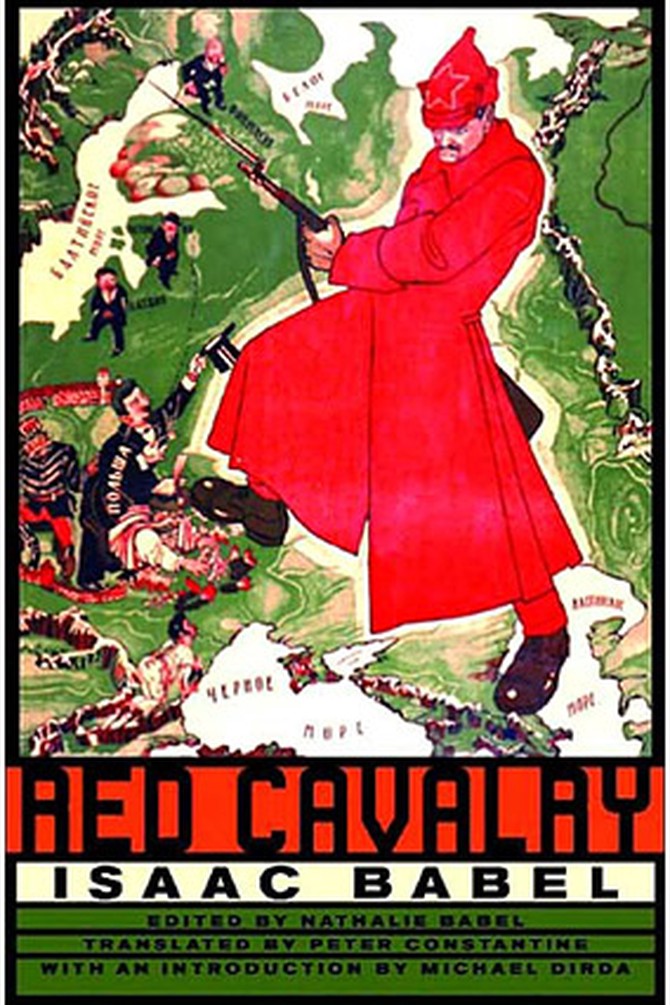
Red Cavalry
By Isaac BabelThis story cycle follows a young Jewish intellectual who goes forth with the Cossacks (the Hells Angels of Russia, notoriously anti-Semitic) to spread the Russian Revolution to Poland. Babel—even in English translation—is one of the most breathtaking prose stylists of all time. As minimalist as Hemingway, as lush as Nabokov, he is obsessed with issues that seem particularly relevant today: the allure and horror of power, and the place of the dreamer in a brutal world.
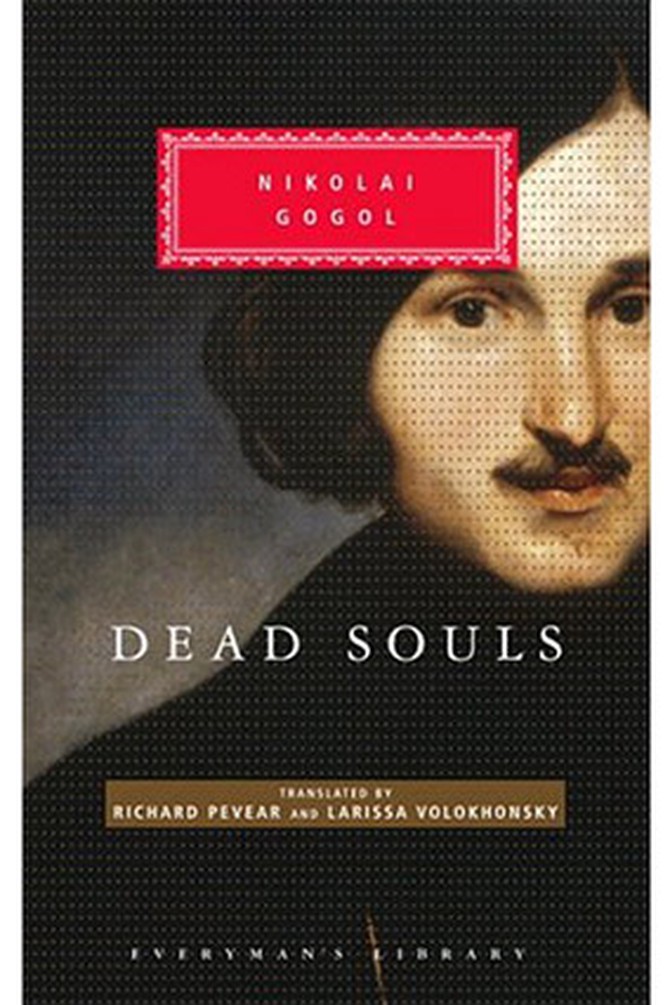
Dead Souls
By Nikolai GogolSometimes I think fiction exists to model the way God might think of us, if God had the time and inclination to do so. Gogol comes closest to my current feeling about what God thinks of us. God/Gogol thinks we're very odd and funny, pathetic really, a bunch of self-centered disasters about to happen, of whom he is, nevertheless, fond. Chichikov, a kind of Russian Willy Loman, roams the countryside, buying up dead serfs—but the point is the roaming, and all the Russian nut jobs he meets in the process. Big, epic, and hilarious, Dead Souls convinced me once and for all that the comic approach is the most true and generous, the closest to our actual experience of life. We try, we fail, we posture, we aspire, we pontificate—and then we age, shrink, die, and vanish.

